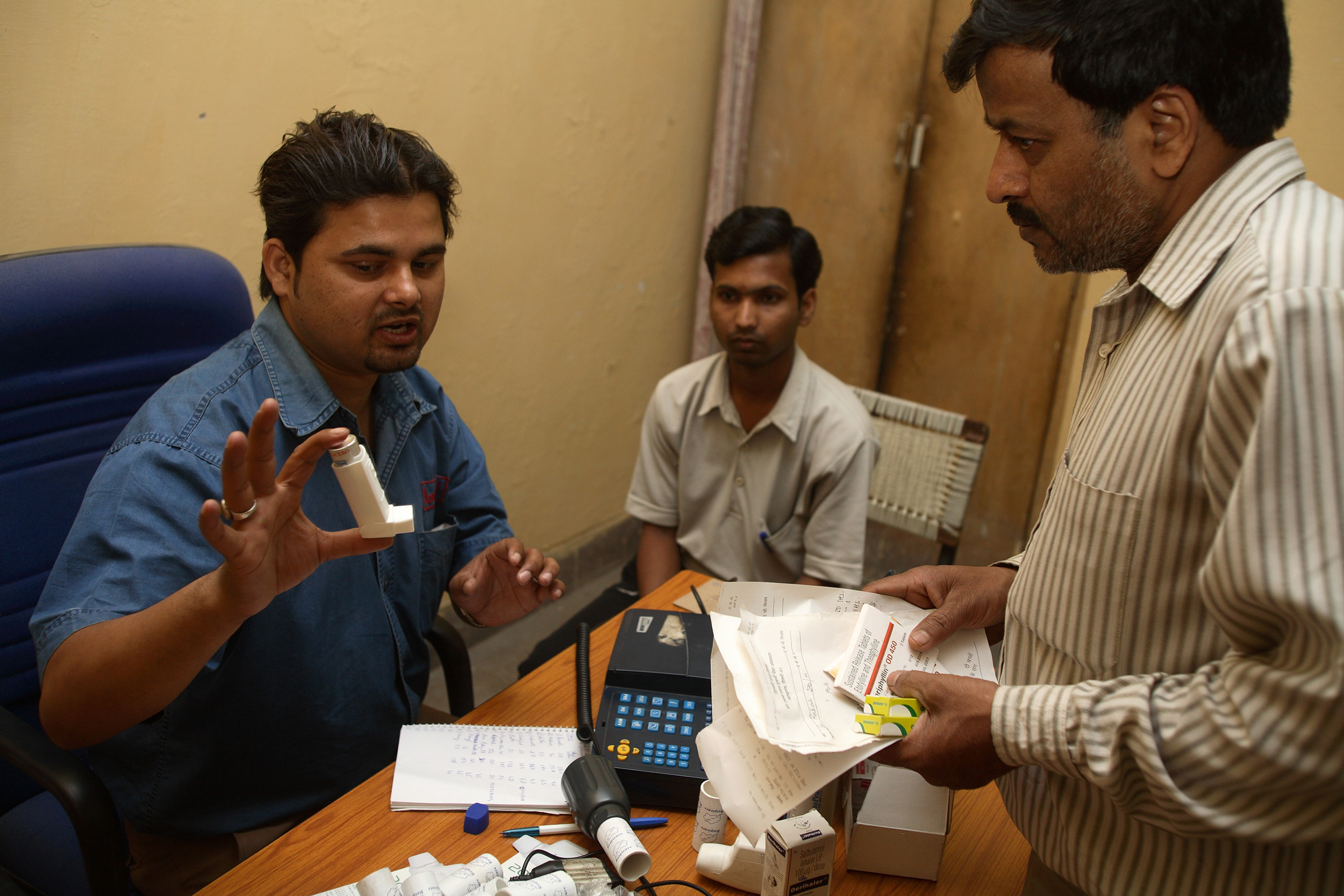
India
Despite barriers, regular patient education programmes are increasing the acceptability of inhaler treatment.
Among India’s 1.31 billion people, about 6% of children and 2% of adults have asthma. Most people do not have health insurance and there is a wide gap in healthcare facilities for rich and poor. Almost all types of inhaled corticosteroids, β2-agonist and combination inhalers are available at pharmacies but these are expensive in comparison to oral formulations. In 2015, the Indian Chest Society and National College of Chest Physicians published national Indian asthma guidelines. However, medical professionals appear to underutilise these guidelines.
Barriers in treatment
A large number of patients in India still consider asthma a stigma and therefore conceal the disease. Many believe that inhalers are habit forming and strong medicines. Asthma has different deceptive symptomatic names, such as cough and saans (breathlessness). Many patients take treatment when they are symptomatic, or symptoms are intolerable, and stop when symptoms subside. Despite these barriers, with frequent and regular patient education programmes, the acceptability of inhaler treatment for bronchial asthma is gradually increasing.
Reducing mortality
From 1990 to 2005 asthma mortality in India fell, particularly in prosperous states and urban areas where healthcare facilities are better. India’s highest mortality, which health authorities are addressing, is in Uttar Pradesh and Rajasthan.
Rajasthnan initiatives
In Rajasthan (western India), since 2011 most important medicines are provided free to all state patients at government hospitals. The state has undertaken pooled procurement of medicines for Rajasthan’s 70 million people, leading to a substantial reduction in procurement cost. Annual spending, including supply chain, personnel and cost of medicine, is around 3000 million rupees (0.5% of the state budget). Across the state, including remote areas, the government opened 15,000 pharmacies. The state provides asthma patients with free metered dose inhalers, dry powder inhaler capsules and nebulizer solution. Many patients have shifted from private to government hospitals, where outpatient and inpatient numbers increased. The outcome is that asthmatic patients are accessing treatment more easily, but compliance issues persist.
National initiative
The Government of India announced in February 2018 that it is planning free health insurance to cover treatment costs for 100 million low-income families.
